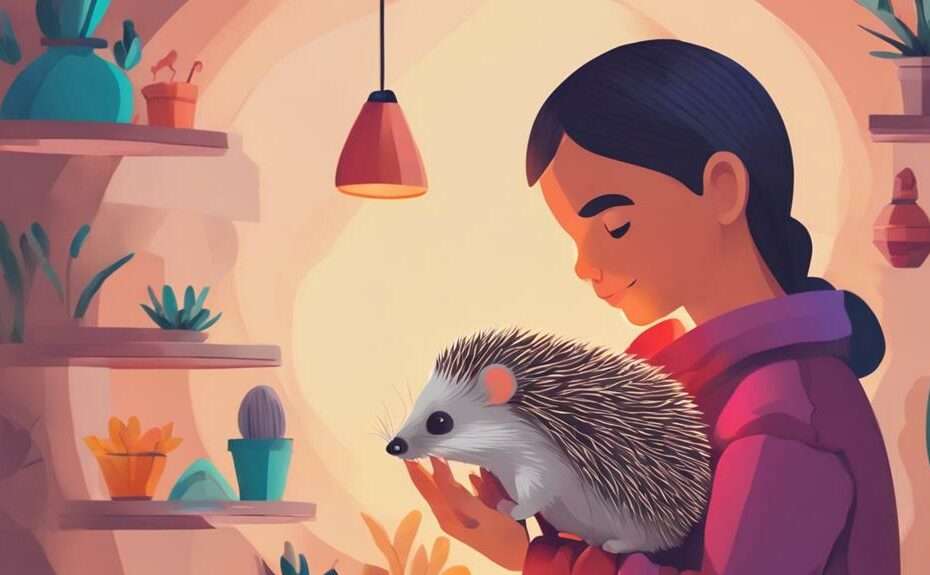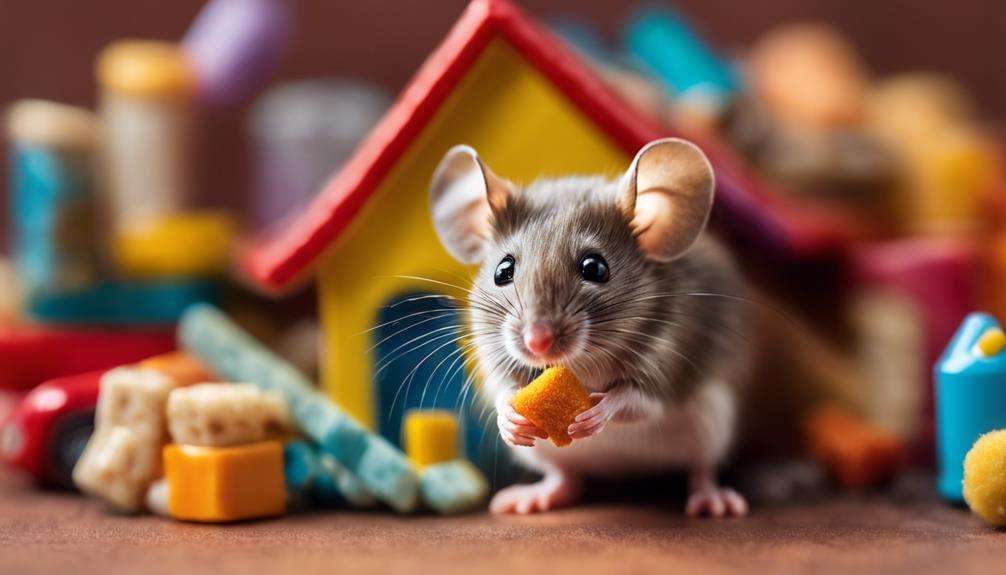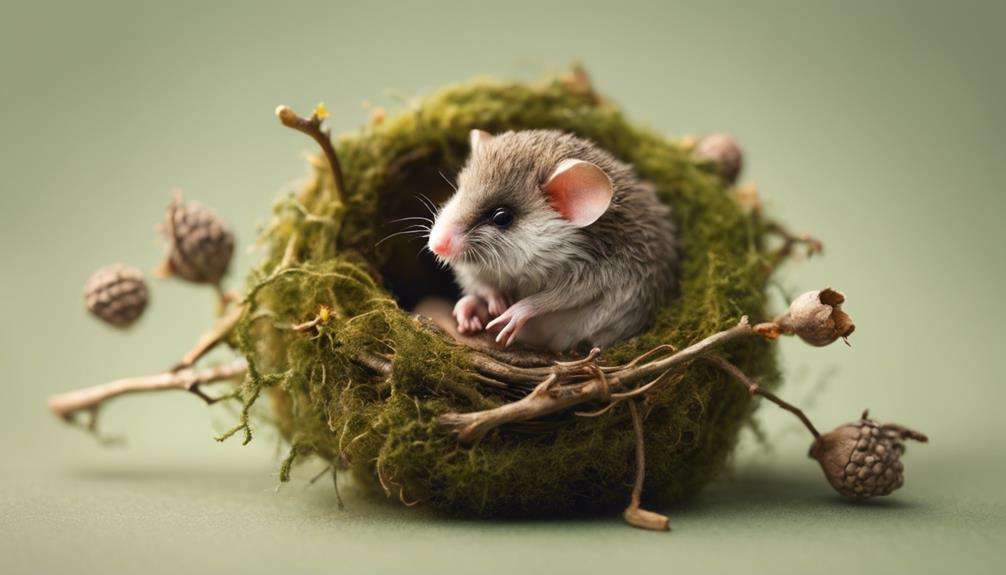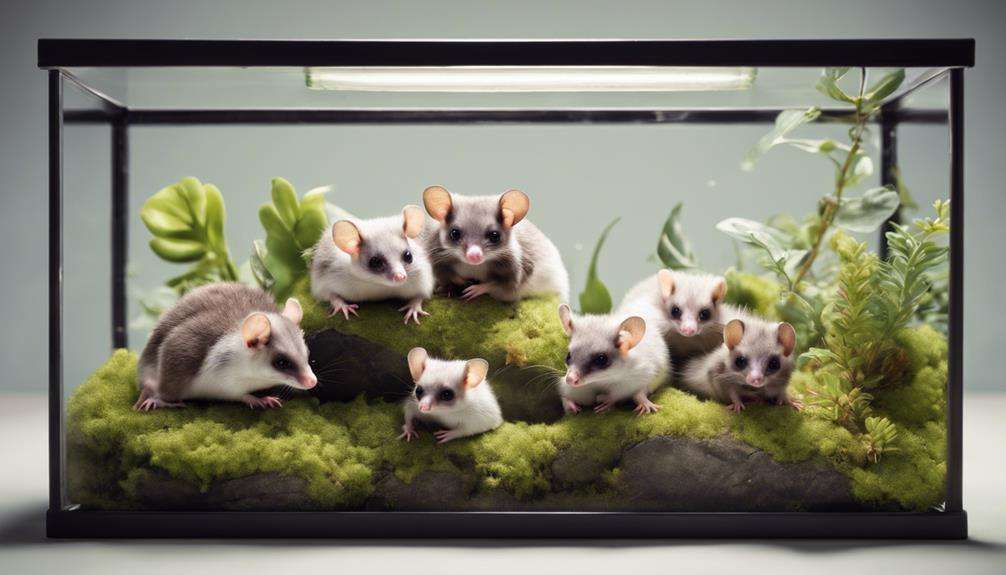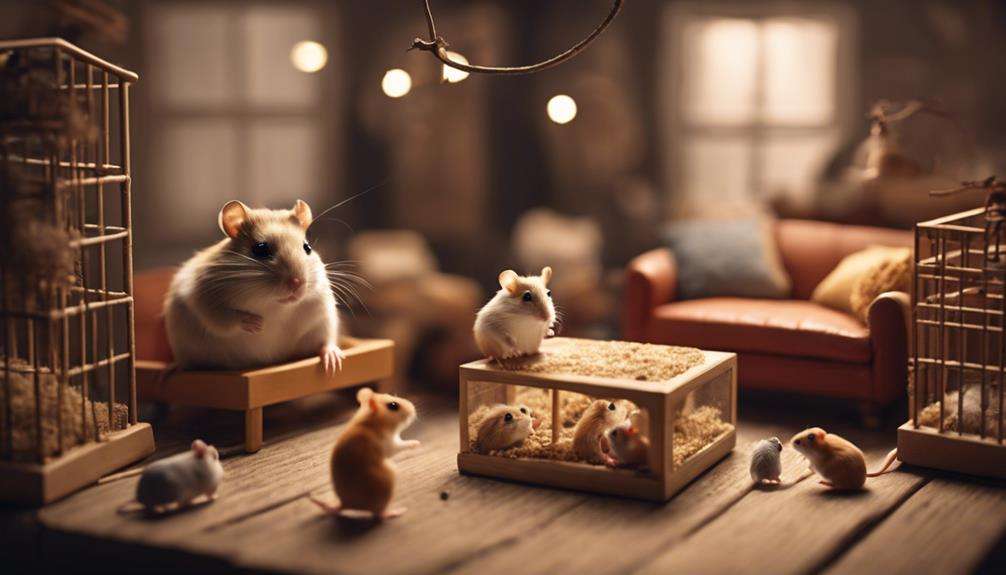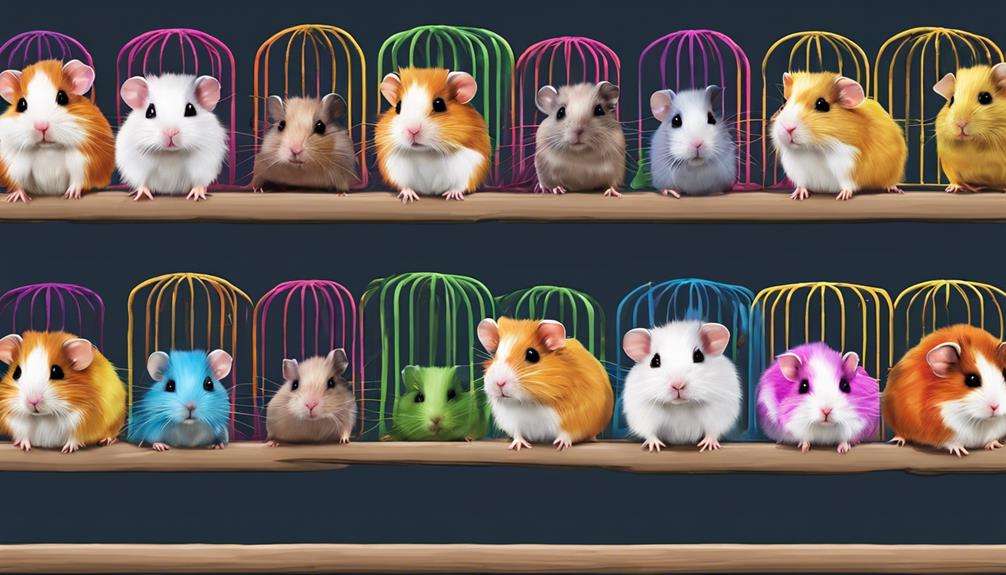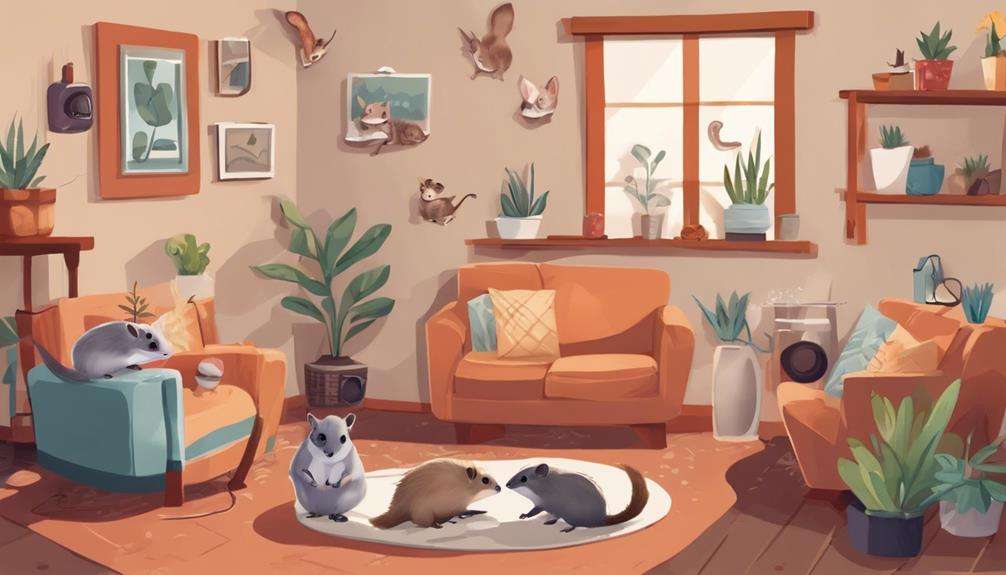In a world where cats and dogs dominate the pet landscape, have you ever considered the charm of owning a unique small mammal? These uncommon critters bring a touch of novelty and intrigue to your home.
From the mysterious Degu to the playful Chinchilla, there's a whole kingdom of lesser-known companions waiting to be discovered. So, why not step into the domain of unconventional pets and uncover the joys that these distinctive creatures can bring into your life?
Key Takeaways
- Chinchillas, hedgehogs, degus, spiny mice, and prairie dogs offer unique companionship options.
- Proper care, including diet, habitat, and social needs, is crucial for these uncommon pets.
- Understanding their specific requirements ensures a fulfilling and enriching experience as a pet owner.
- Uncommon small mammals can bring joy and fascination with their distinct behaviors and characteristics.
Chinchilla as an Unusual Pet
Chinchillas, as uncommon pets, are gentle, long-lived herbivores that thrive best when kept in pairs for companionship. These small mammals have specific temperature and humidity requirements, preferring cool, dry environments to stay healthy.
Being crepuscular animals, chinchillas are most active during dawn and dusk, aligning their schedule with these times. Their dense fur necessitates regular dust baths for grooming, ensuring their coat remains clean and free of oils. Additionally, chinchillas have continuously growing teeth, emphasizing the need for chew toys to maintain their dental health.
Ensuring that these herbivores have access to appropriate items for grooming and dental care is critical in their overall well-being. When considering chinchillas as pets, it's essential to create a suitable habitat that meets their temperature and humidity needs and provide opportunities for companionship, grooming, and dental hygiene.
Hedgehog: A Quirky Companion
Shifting from considering chinchillas as pets, another intriguing option is the hedgehog, a quirky companion known for its nocturnal habits and unique protective quills. Hedgehogs are solitary creatures that require a specific diet high in protein and low in fat, supplemented with insects or mealworms to thrive.
Ensuring a temperature-controlled environment between 72-80°F is vital for their well-being and to prevent hibernation attempts. Regular exercise, either through exercise wheels or playtime, is essential for hedgehog health and mental stimulation. While hedgehogs are generally low maintenance pets, they do require regular grooming to prevent mites and maintain skin health.
Their nocturnal nature makes them fascinating to observe during the evening hours. The quills that cover their bodies serve as a defense mechanism against potential threats. By providing the right care and environment, a hedgehog can make for an intriguing and rewarding companion.
Discovering the Degu
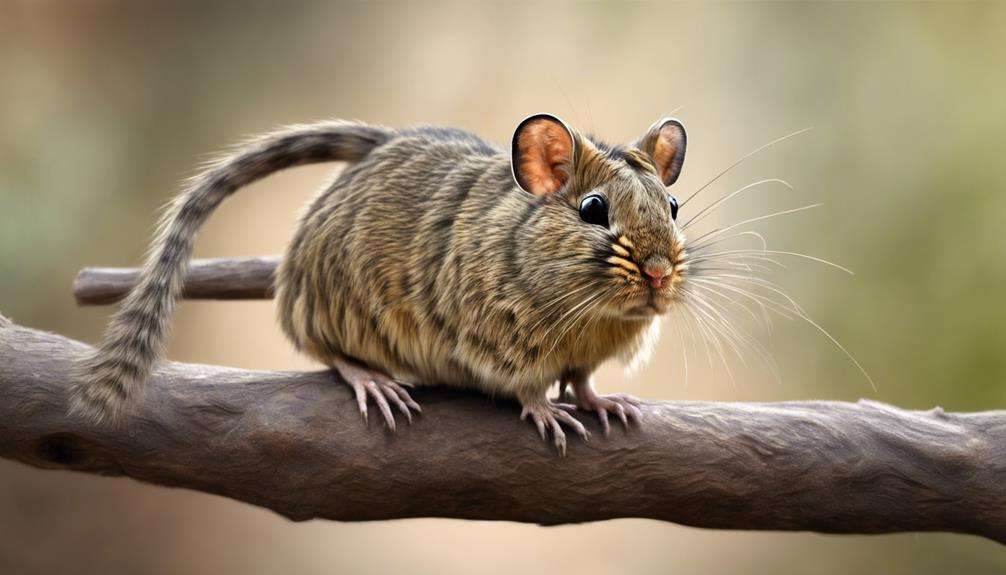
When considering unique and social pets that thrive in a specific temperature range, the degu stands out for its distinctive communication methods and dietary needs. Degus, resembling gerbils, are highly social animals that rely on vocalization and body language to interact with their colony members. To maintain their well-being, it's essential to keep a temperature between 65-75°F in their environment. Degus have a specialized diet that includes hay, fresh vegetables, and limited fruits to support their health.
For best physical and mental health, providing a spacious, multi-level cage with toys and tunnels is essential to keep degus active and engaged. However, owners must be vigilant as degus are prone to diabetes, dental issues, and obesity. Regular veterinary check-ups and a balanced diet are necessary to prevent these health concerns. By understanding and catering to the unique needs of degus, you can enjoy a fulfilling companionship with these fascinating small mammals.
Exotic Spiny Mice Insights
Exotic Spiny Mice, being omnivorous small mammals with specific environmental and dietary needs, present a unique pet ownership experience due to their social nature and preference for specialized care. These small, exotic creatures require a warm environment and have particular housing requirements to thrive.
Spiny mice, resembling gerbils, are highly social animals, emphasizing the need for companionship. When considering these unique pets, it's essential to understand that they've distinct dietary needs that include a varied diet to make sure their well-being. The care of spiny mice is unlike that of more common household pets, requiring specialized attention and knowledge.
Providing a suitable habitat and meeting their social requirements are critical aspects of their care. To sum up, spiny mice offer a distinctive pet ownership experience due to their exotic nature, social behavior, and unique care needs, making them a fascinating choice for those interested in uncommon small mammals.
Prairie Dogs: Unique Pets
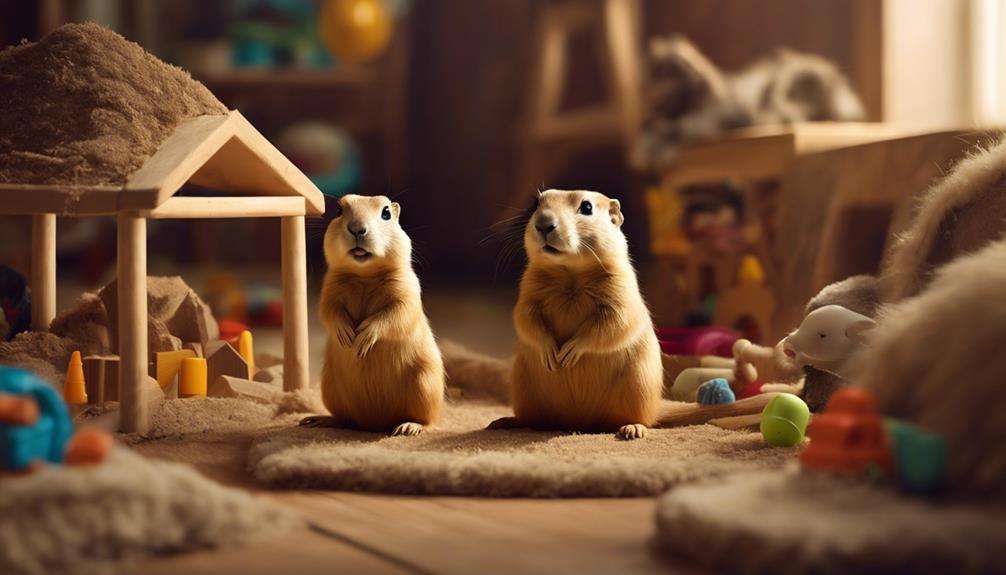
Affectionate by nature, prairie dogs are unique pets native to grass prairies, requiring specific care and attention to thrive in a domestic setting. These animals have a specific diet that includes grasses, seeds, and some fruits and vegetables. Specialized care is essential to cater to their social needs as they're highly social creatures that thrive in colonies.
Prairie dogs exhibit unique characteristics such as digging elaborate burrow systems and communicating through complex vocalizations. To form strong bonds with their owners, prairie dogs need commitment and patience to understand their natural behaviors. Providing an environment that mimics their natural habitat is essential for their well-being.
Owners must be prepared to invest time and effort into creating a suitable living space that allows these pets to express their natural instincts. Overall, owning a prairie dog requires dedication and a willingness to meet their specific needs for a fulfilling companionship.
Frequently Asked Questions
What Is the Most Uncommon Pet to Own?
The most uncommon pet to own is subjective. Exotic companions, rare critters, and unusual buddies like the greater galago, snake-necked turtle, or jerboa are offbeat pets. Before choosing these quirky sidekicks, research their unique care needs thoroughly.
What Small Mammals Can Be Kept as Pets?
Sugar gliders, hedgehogs, chinchillas, degus, ferrets, skunks, pygmy goats, wallabies, capybaras, and prairie dogs are small mammals that can be kept as pets. They offer unique companionship, each with specific care requirements.
What Is the Best Unique Pet to Have?
For the best unique pet, consider exotic reptiles, unusual birds, rare amphibians, quirky insects, odd fish, unique arachnids, uncommon rodents, strange marsupials, lesser known primates, or specialized pets. Choose based on your preferences and commitment level.
What Is the Best Small Animal to Have as a Pet?
For an ideal small pet, consider exotic rodents like degus, unusual marsupials such as sugar gliders, or tiny primates like pygmy marmosets. Each species has unique care requirements, making them fascinating choices for enthusiasts.
Conclusion
To sum up, exploring the world of unique small mammals as uncommon pets can lead to rewarding and enriching experiences.
Take, for example, the case of Sarah, who decided to adopt a pair of chinchillas. Through dedicated care and bonding activities, Sarah observed their playful interactions and gentle nature, forming a strong bond with her new furry companions.
By considering these unconventional pets, you too can start on a journey of discovery and companionship with these intriguing creatures.
